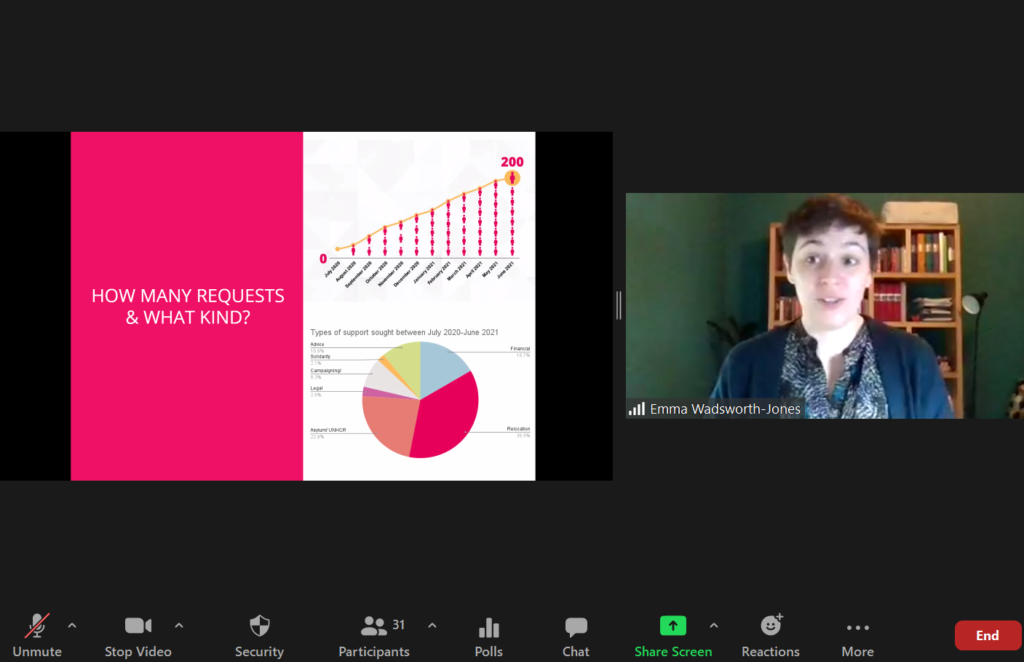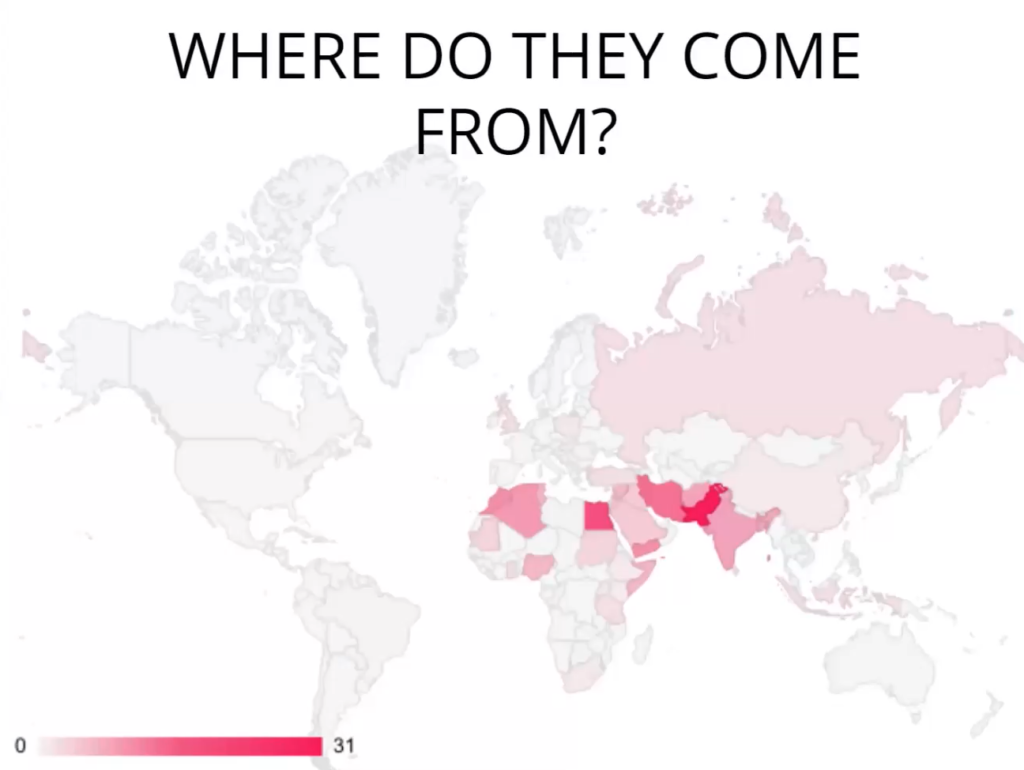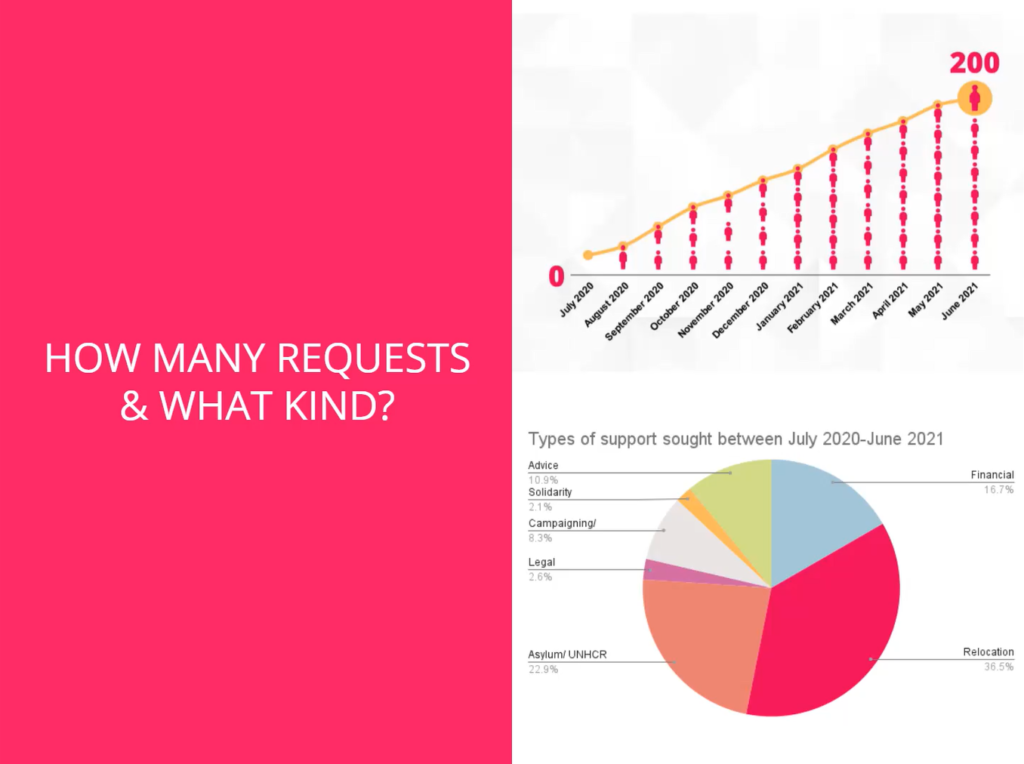
By Vanessa Ng
The following article is based on Ms Emma Wadsworth-Jones’s talk during the 2021 Humanist Conference. Emma is the Humanists At Risk Coordinator of Humanists International. Article is sponsored by GroomTalent (www.groomtalent.com) under the HumanistSG Patron Programme.
Imagine this.
Picture an average human being leading an average life. This person works in an average job, has an average family, and hangs out with average friends.
Despite minding his own business, he is bullied, ostracised, discriminated and isolated. He has limited access to jobs and positions in the government, and face bullying at home and when outside. The bullying can be verbal, or physical. This means that he is actually slapped, punched, and brutally attacked by people.
What kind of crime do you think this person did?
The danger faced by the non-religious is very real
The scenario above describes how non-religious at risk in religious countries are treated.
If you are in disbelief, look at the case of Mashal Khan in 2017.
A young journalism student in Pakistan, Mashal was active on his Facebook. He posted about promoting women’s rights and opposing racism. When he wrote on Facebook that he was a Humanist, a group of students started hunting him down in the university while chanting religious slogans. Upon finding him, they dragged him out of his accommodation and brutally beat him to death. Mashal was also stamped on and shot, his body mutilated.
After his death, many people in his home village stayed away from the funeral, fearing being attacked by hardliners.
Despite the outrageous murder, this was the sentence by the Pakistani court – One man was sentenced to death, five others were handed life terms, 25 were convicted of lesser offences, and 26 people were acquitted.
This means that 26 persons who were part of the murder were released, guilt-free.
A cycle of impunity
As you can imagine, the treatment of Humanists in these countries can create a climate of fear and self-censorship. It builds a cycle of impunity, where would-be assailants are emboldened to carry out further attacks.
Ms Emma Wadsworth-Jones, Humanists At Risk Coordinator of Humanists International, is trying to change that. She is trying to save these Humanists, but it has not been easy.
The truth is, both the news and the government do not prioritise refugees seeking relocation due to their non-religious beliefs. Various news outlets focus on refugees fleeing for a variety of reasons, but mostly due to political unrest and environmental disasters. When was the last time you heard about a refugee seeking asylum for being non-religious?
Support for refugees fleeing to destination countries for being humanists is often poor. This is because they are taken less seriously than their counterparts, and often have a hard time explaining their reason for fleeing. Many countries are unable to comprehend why non-religious refugees have to flee. There are instances when the government even requested for Humanists to simply pretend to be religious as a solution, not recognising the adverse impact on their mental well-being.
Relocation for these individuals is also difficult because the amount of evidence required to prove that one is persecuted due to non-religious beliefs is very high.

Women likely have it worse
Emma receives cases from countries such as Pakistan, Egypt, Iran, Morocco, Afghanistan and more. The majority of the requests for help came from men. It is not too far-fetched to assume that this stems from the double discrimination that non-religious women face. After all, women are subject to both patriarchy and discrimination.
The unfortunate truth is that women who do reach out to Emma often have no access to a personal computer or mobile phone. They may have borrowed a phone from their family member, which means that these women do not even know when they are able to follow up or speak to Emma again.
Covid-19 worsened the safety of Humanists
Many communities saw the pandemic as a punishment from God, with the ultimate sinners being the non-religious. This meant that harsher discrimination and scapegoating were dished out to the non-religious. Humanists were unable to escape in their own country by leaving their home to somewhere safer, much less travel abroad with closed borders.
Since they are stuck at home, these Humanists have to go against their own beliefs, and are forced to pray and observe Ramadan amidst the pandemic. Unsurprisingly, they suffer from stress and mental health problems as a result. Furthermore, Humanists who are in prison due to their non-religious also face overcrowded prisons with poor health conditions there.
The only upside is that assailants are unable to go out of their homes to physically harm the non-religious during lockdowns. With measures loosening up, the fate of Humanists in these countries looks bleak.


All hope is not lost
Emma underscores that change takes time. Thankfully, progressive steps have been made. Take for example the case of Cheikh and Mahmoud.
Blogger and human rights defender Mohamed Cheikh Ould Mkhaïtir was sentenced to death from apostasy in Mauritania. He was arrested in 2014 for publishing a blog post that spoke of slavery and discrimination against the blacksmith caste, which he belongs to. He had trouble finding legal assistance since lawyers risk their own lives defending him. After a lot of backchannel behind-the-scene lobbying to pressure Mauritania into releasing him, he is now out of the country.
Professor Mahmoud Jama Ahmed was arrested by the Somali police in 2020 for trying to find solutions for the annual drought faced by Somalia. He posted on Facebook, questioning if praying to God for water was a useful strategy to overcome Somalia’s drought and suggested that Somali authorities should have used a scientific approach instead. Despite being released following a pardon, there was still a public outcry for him to be killed. To worsen the situation, lockdown hit as he was fleeing with his wife and children to another country. As he continues to go into hiding, organisations are working hard to provide financial support and help him resettle. Mahmoud is now on a long journey of claiming asylum.
As Nelson Mandela succinctly pointed out, “To deny people their human rights is to challenge their very humanity.” Humanists have the right to be non-religious and not be punished for it.




